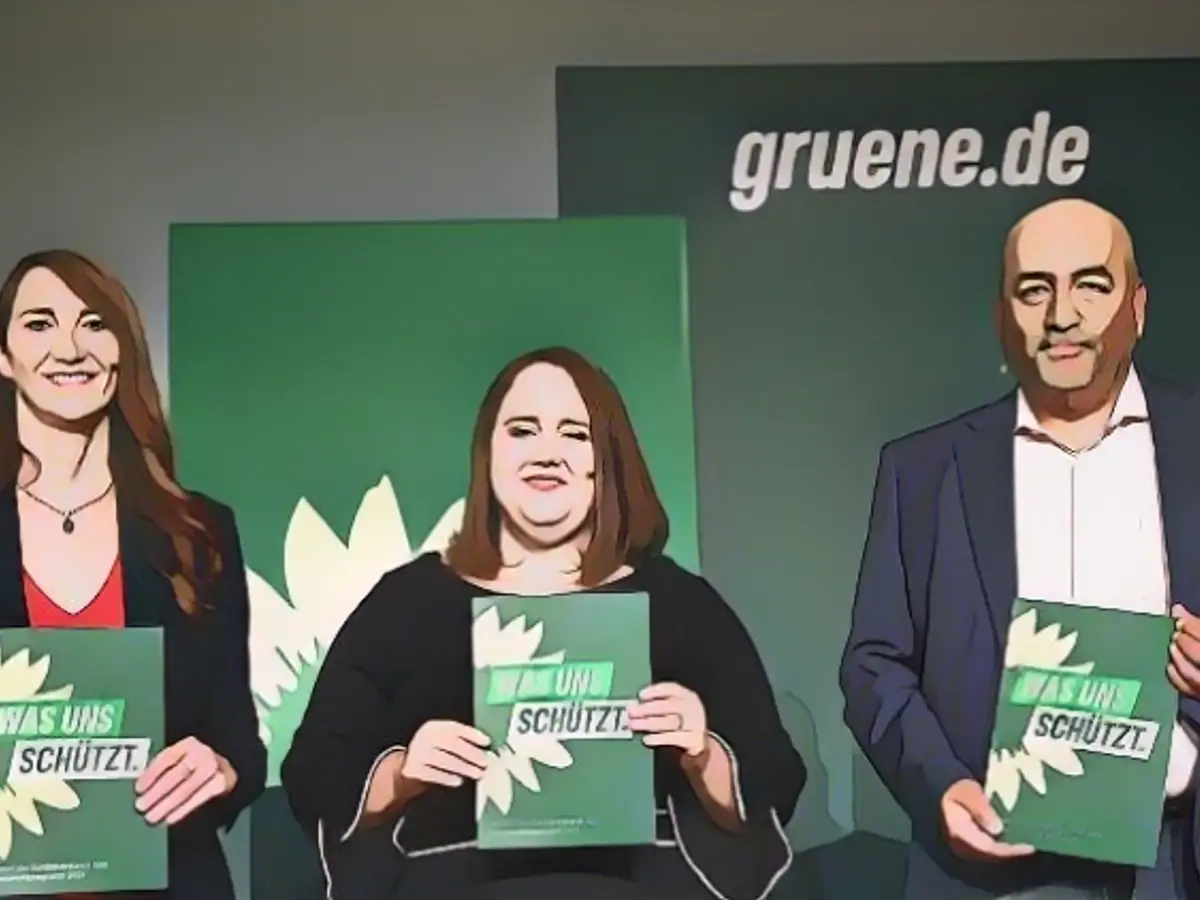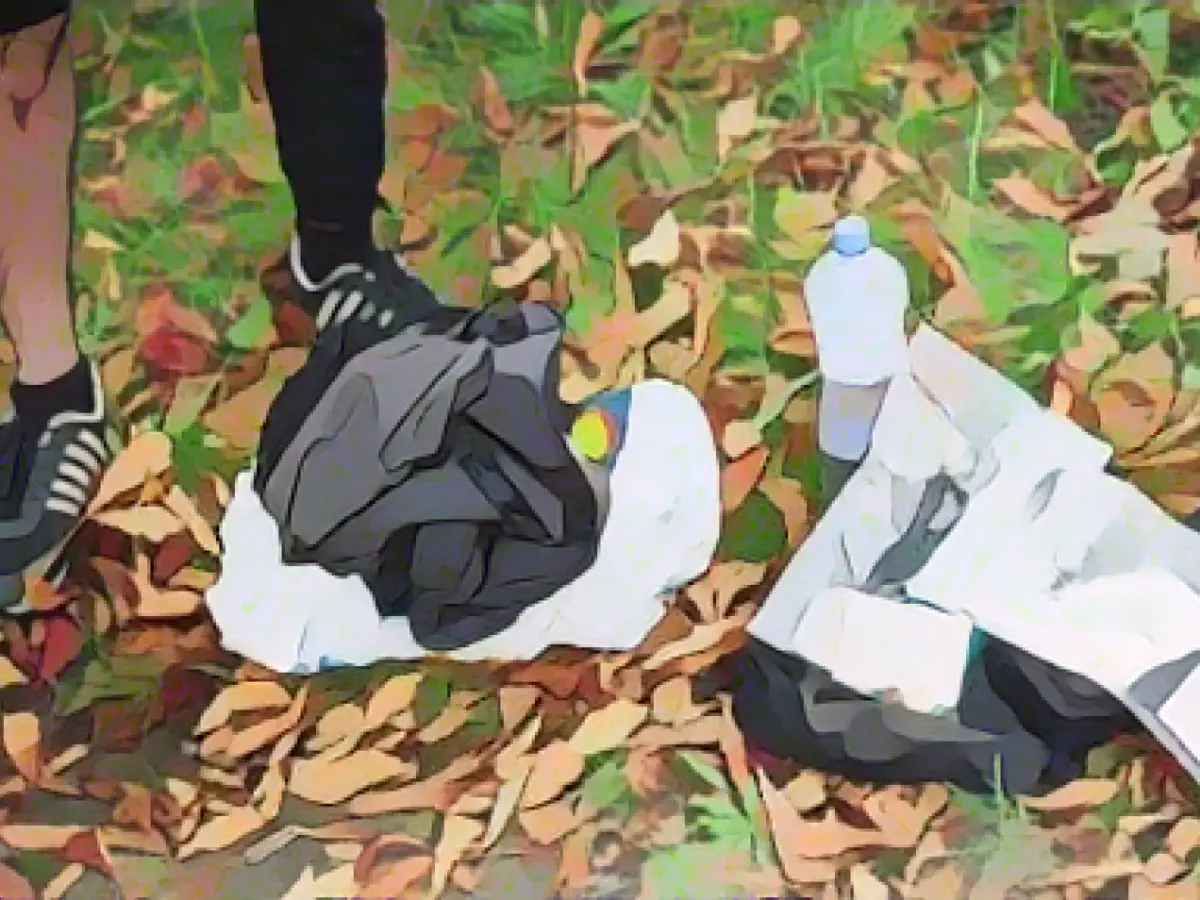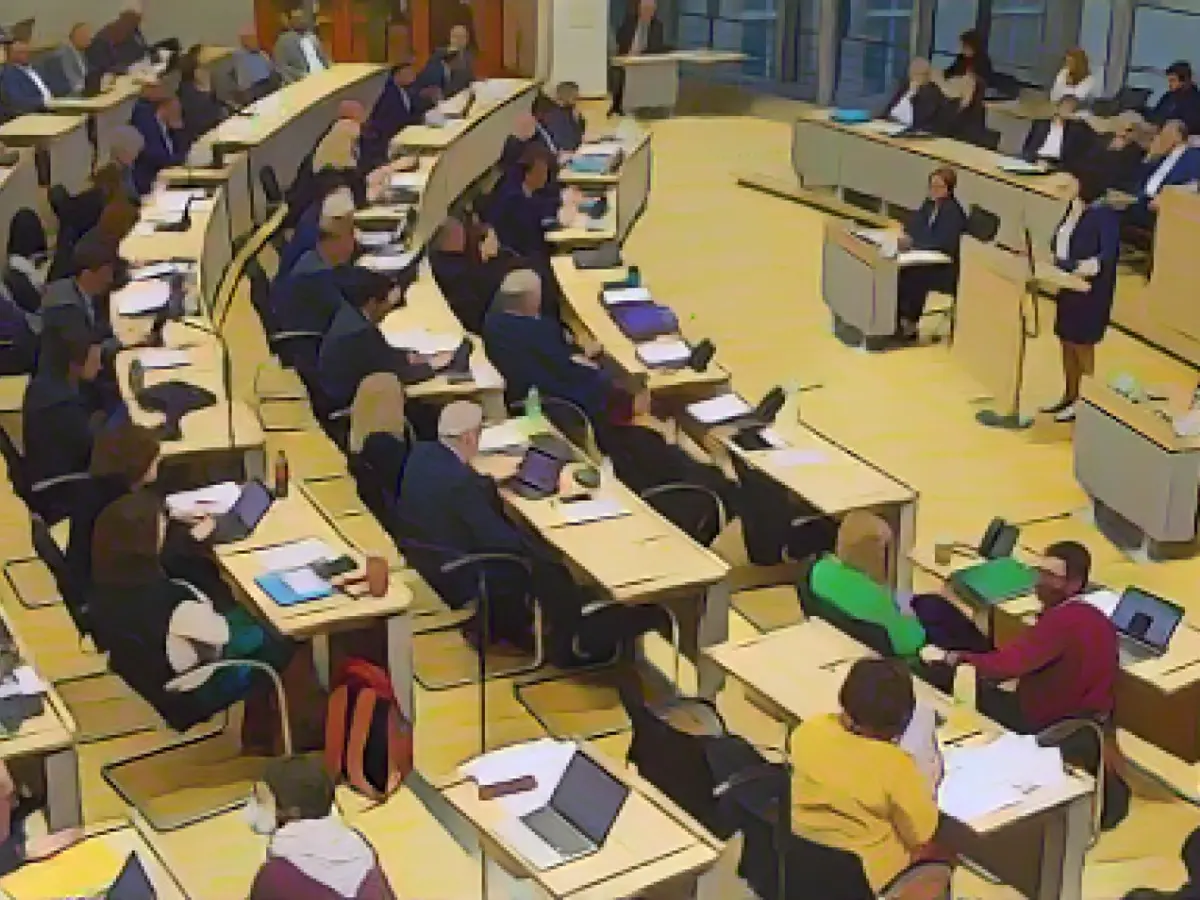Green Party's Delicate Conference Juggles Leadership, Budget, and Internal Strife
As the German Green Party gathers for its annual conference in Karlsruhe, tensions loom large in this delicate gathering. Over four days, the party aims to confirm their leadership in office, finalize their European election program, and select candidates for the European elections. This conference, however, coincides with the next major "traffic light" coalition crisis, which adds to the pressure on the party to unite.
Two years have passed since the Greens celebrated their achievement of government participation in the "traffic light" coalition. The parliamentary election campaign was long and exhausting, but the Greens took pride in their victory, with an air of optimism filling Berlin's Westhafen. However, events since have tested this optimism to its limits.
An Incomplete List of Challenges
The Greens have faced numerous setbacks, including:
- Embarrassing Departures: With the departure of Anne Spiegel as Federal Minister for Family Affairs, the party faced its first major blow.
- Arms Delivery Advocacy: The party took a controversial stance by advocating for arms deliveries to Ukraine and supporting a robust upgrade of the Bundeswehr.
- Nuclear and Coal Power: The party's support for the extension of nuclear power and the reactivation of coal-fired power plants was met with backlash.
- Liquefied Natural Gas (LNG) Ports: Controversy arose as the party approved the construction of LNG import ports in environmentally sensitive locations.
- Coal Mining Disputes: The Greens faced internal squabbles regarding coal mining, particularly in the village of Lützerath.
- Defeats in State Elections: Losses in state elections in Saarland, Bavaria, Bremen, and Hesse added to the party's woes.
- Disputes Within the Party: Heated debates ensued over the heating law, asylum policy, and basic child protection schemes.
Last-Minute Changes to Program
Due to the looming budget crunch and the threat of an early government collapse, the party conference agenda underwent a last-minute change. The debate on the current situation was brought forward to early Thursday evening, with Federal Economics Minister Robert Habeck scheduled to speak.
The Green Youth's Motion
Postponement of a second debate, originally planned for late Thursday, has now been pushed back to late Saturday: the Federal Government's asylum policy in Germany and Europe. The Green Youth has tabled a motion to ensure their party rejects any tightening of asylum laws. Additionally, an incendiary letter circulating within the party denies federal ministers the right to pursue green policies.
Facing Internal Challenges and Budget Constraints
As the party gears up to secure another term in office, two key Green stars - Annalena Baerbock and Robert Habeck - face internal challenges and must maintain unity to prevent centrifugal forces from growing stronger. At the same time, the coalition government's budget policy faces strain due to the debt brake ruling, threatening climate projects and the very existence of the German government.
Balancing Act Between Karlsruhe and Berlin
As the party leadership aims to secure another term, finalize the European election program, and elect European election candidates, federal ministers cannot afford to be absent for long in Berlin or the world, where Baerbock must handle Middle East appointments. The federal ministers must balance their duty in Berlin with the need to be present in Karlsruhe, where the Greens held their founding party conference 43 years ago.
The Party's Future
The party leadership, Omid Nouripour and Ricarda Lang, have tentatively accepted that they may not receive substantial votes during their election for a second term in office. Despite this, they aim to maintain the party's position as a political force of the center, while confronting the image of an elitist party of prohibition.
With the Greens polarizing public opinion more than ever, the party might as well save itself the backbreaking decision of whether to send Habeck or Baerbock into the chancellor's race in 2025. Sources:
Enrichment Data: To address their internal challenges, the German Greens are focusing on several strategies:
- Personal Campaign and Discourse:
- By nominating Robert Habeck as their candidate for Chancellor, the party is banking on a personal campaign that emphasizes his leadership and vision for the energy transition and social justice.
- Coalition Strategy:
- The party is exploring potential coalitions, particularly with the Christian Democratic Union (CDU), while maintaining a strong stance against the AfD.
- Policy Reforms:
- The party is advocating for policies that support farmers and food security, promoting sustainable farming practices, and enhancing renewable energy sources. They are also pushing for low-emission heating methods and increased investment in national battery research programs.
- Internal Reforms:
- To ensure a unified message and strategy, there's a need for more intensive cooperation among different party levels, addressing internal divisions, and reinforcing the party's core values to regain voter trust. This includes enhancing party democracy, reforming party structures, and promoting a more inclusive, open, and participatory political culture.
By focusing on these strategies, the German Greens aim to address their internal challenges, maintain unity, and present a compelling vision for the upcoming federal election.








